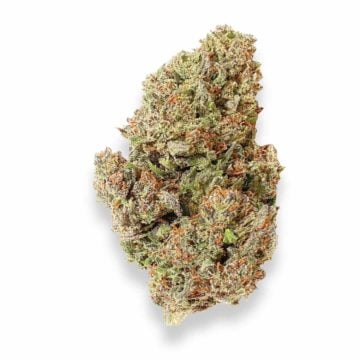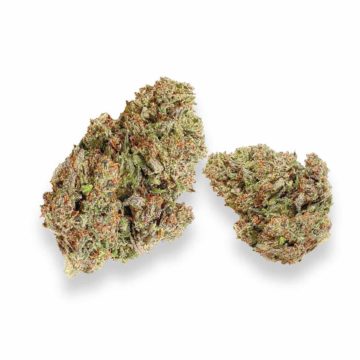
Is Recreational Weed Legal in Washington State
- Washington State’s Legalization of Recreational Weed
- Possession and Personal Use Regulations
- Purchasing Recreational Marijuana
- Cultivation of Marijuana
- Legalization’s Impact on Law Enforcement
- Taxation and Revenue Generation
- Public Health and Safety Regulations
- Employment and Workplace Regulations
- Impact on the Black Market
- Future Trends and Developments
- Conclusion
In this article, we will delve into the current legal status of recreational weed in Washington State. We will explore the laws and regulations surrounding the use, possession, and sale of recreational marijuana, providing readers with a comprehensive understanding of the topic.
This post is intended as information and for general knowledge only. It is not a substitute for medical advice, diagnosis, or treatment. It is recommended that you talk to a healthcare professional about this before introducing cannabinoids into your daily routine (especially if you have been diagnosed with any medical conditions or are under any medication). It is not recommended to drive or operate any machinery when using cannabis- or hemp-derived products. Use responsibly!
Washington State’s Legalization of Recreational Weed
Background of Legalization
Washington State’s journey towards legalizing recreational marijuana was influenced by a convergence of cultural, social, and political factors. The changing attitudes towards marijuana use, coupled with the growing acceptance of medical marijuana, set the stage for broader legalization efforts. The state’s initiative system, which empowers citizens to directly shape legislation, played a pivotal role in shaping the discourse around marijuana.
Initiative 502
In 2012, Washington State voters approved Initiative 502, a groundbreaking ballot measure that marked a turning point in marijuana policy. This initiative not only legalized recreational marijuana but also established a regulatory framework for its production, distribution, and sale. By garnering significant voter support, Initiative 502 demonstrated a shifting perspective on marijuana, reflecting a desire for a more rational approach to its regulation.
Possession and Personal Use Regulations
Minimum Legal Age
To ensure responsible marijuana use, Washington State enforces a minimum legal age of 21 years for purchasing and possessing recreational marijuana. Violations of this age requirement can lead to penalties, emphasizing the state’s commitment to safeguarding public health.
Personal Possession Limits
Washington State law stipulates specific possession limits for various forms of marijuana. For instance, individuals are allowed to possess up to one ounce of useable marijuana or the equivalent in marijuana-infused products. These limits ensure that marijuana is used for personal enjoyment while discouraging excessive possession or potential misuse.
Private Consumption Guidelines
While the state has legalized recreational use, it strictly prohibits public consumption. Individuals can enjoy marijuana within private settings, such as their homes, but are expected to respect the boundaries of public spaces. Violating these consumption guidelines can result in legal consequences.
Purchasing Recreational Marijuana
Licensed Dispensaries

Licensed dispensaries and retail stores play a crucial role in the legal distribution of recreational marijuana. The Washington State Liquor and Cannabis Board oversees the regulation and licensing of these establishments, ensuring adherence to quality and safety standards.
Purchase Process
The process of purchasing recreational marijuana involves several steps, including age verification and valid identification. Buyers must adhere to these requirements to prevent unlawful transactions and underage access to marijuana products.
Out-of-State Visitors
While Washington State allows the sale of recreational marijuana to individuals aged 21 and above, purchasing options might differ for out-of-state visitors. It’s essential for those visiting from other states or countries to familiarize themselves with local regulations before attempting to purchase marijuana products.
Cultivation of Marijuana
Personal Cultivation Rules
Individuals are allowed to cultivate a limited number of marijuana plants for personal use. Washington State law permits the cultivation of up to six plants per person, with a maximum of 15 plants per household. This provision grants individuals the freedom to grow their marijuana while preventing excessive cultivation that could fuel the black market.
Home Cultivation Licensing
Unlike some states, Washington State does not require licenses for personal cultivation of marijuana. As long as individuals adhere to the allowed plant count and comply with regulations, they can cultivate marijuana without needing an additional license.
Legalization’s Impact on Law Enforcement
Shift in Priorities
The legalization of recreational marijuana has prompted a shift in law enforcement priorities. With reduced resources dedicated to pursuing marijuana-related offenses, law enforcement agencies can focus on more pressing matters, enhancing public safety overall.
Arrest and Prosecution Rates
Statistical data showcases a marked decline in arrests and prosecutions related to marijuana since its legalization. This change reflects a concerted effort to address marijuana-related issues through more balanced and pragmatic approaches, reducing the strain on the criminal justice system.
Taxation and Revenue Generation
Tax Structure
Washington State’s taxation structure for recreational marijuana includes excise taxes, sales taxes, and additional local taxes. These taxes contribute to the overall price of marijuana products and play a pivotal role in revenue generation.
Revenue Allocation
Tax revenue generated from marijuana sales is allocated to various programs within the state. These funds support essential initiatives such as education, healthcare, and substance abuse treatment, contributing to the betterment of the community.
Public Health and Safety Regulations
Product Labeling and Testing
Ensuring consumer safety, Washington State mandates rigorous product labeling and testing standards. Marijuana products must accurately disclose THC and CBD content, enabling consumers to make informed choices.
Quality Control Standards
To maintain product safety and quality, Washington State enforces stringent quality control measures. These measures encompass third-party testing and oversight to uphold consistent standards in the cannabis market.
Employment and Workplace Regulations
Workplace Policies
Employers retain the right to enforce drug-free workplace policies, which may include drug testing for marijuana use. These policies are designed to ensure workplace safety and uphold job performance standards.
Employee Protections
While employers can enforce drug-free policies, Washington State also protects employees who legally use marijuana outside of working hours. Discrimination based solely on legal marijuana use is prohibited, promoting fairness and equal treatment.
Impact on the Black Market
Reduction of Black Market Activity
The legalization of recreational marijuana in Washington State has significantly undermined the illicit black market for the drug. Legal sales provide a regulated and safer alternative, reducing the demand for illegal marijuana trade.
Challenges and RemainingBlack Market
Despite significant progress, challenges remain in completely eradicating the black market. Factors such as neighboring states with different marijuana laws and lingering cultural stigmas contribute to the persistence of illicit marijuana trade.
Future Trends and Developments
Potential Legislative Changes
As public attitudes evolve, future legislative changes regarding recreational marijuana laws are possible. Discussions about expanding current regulations or addressing emerging issues could lead to adjustments in the legal framework.
Social and Economic Impact
Any changes to recreational marijuana regulations can have far-reaching social and economic consequences. Balancing the benefits of revenue generation and reduced law enforcement burden with potential public health concerns will remain a priority in these discussions.
Conclusion
By delving into the multifaceted aspects of the legal landscape surrounding recreational marijuana in Washington State, this article provides a comprehensive understanding of the topic. From the historical journey to legalization to the current regulations and potential future trends, readers should now be well-equipped to navigate the complexities of recreational weed in the state.

















